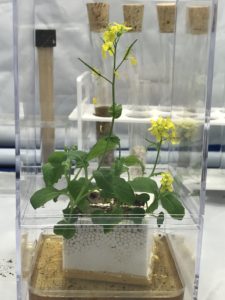UPDATE! Plant lipids in space: a survey paper of research
Plant oils are important for both nutrition as well as industrial purposes. Over the past several decades, it has become possible to grow plants in microgravity in space. It is, therefore, natural to ask: Would growth in microgravity affect the oil content in oilseed plants? See our survey of research Plant lipids in space a survey paper of research that begins to answer this question.
INTRODUCTION
Orbital Genomics is an endeavor of SustainSpace to advance astroculture via several means. First, we will employ newspace approaches to bring in new resources as well as enable faster development. Second, we are taking a moderately deep, yet broad approach to astroculture: we are attempting to bridge the various silos. Third, in addition to traditional physical and hardware approaches, we are working on “soft”, information-oriented approaches such genomics analytics and new business models.
Growing plants is not easy. It has taken decades just to get to the point where actual food for astronauts is being grown, and that is just a few leaves of lettuce so far. Safety and reliability are paramount for the International Space Station (ISS), and neither come cheaply, especially in government operations. However, much research has already been done, and many solvable problems have been identified. Further, the field of biotechnology has itself seen great advances, resulting greatly expanded capabilities at lower costs. Astroculture has a challenging, yet exciting future in the next several years, as past and new efforts begin to bear fruit, so to speak.

Brassica rapa, an edible plant sometimes used for space research. (Quiz: why won’t the plants survive in this set-up?)
